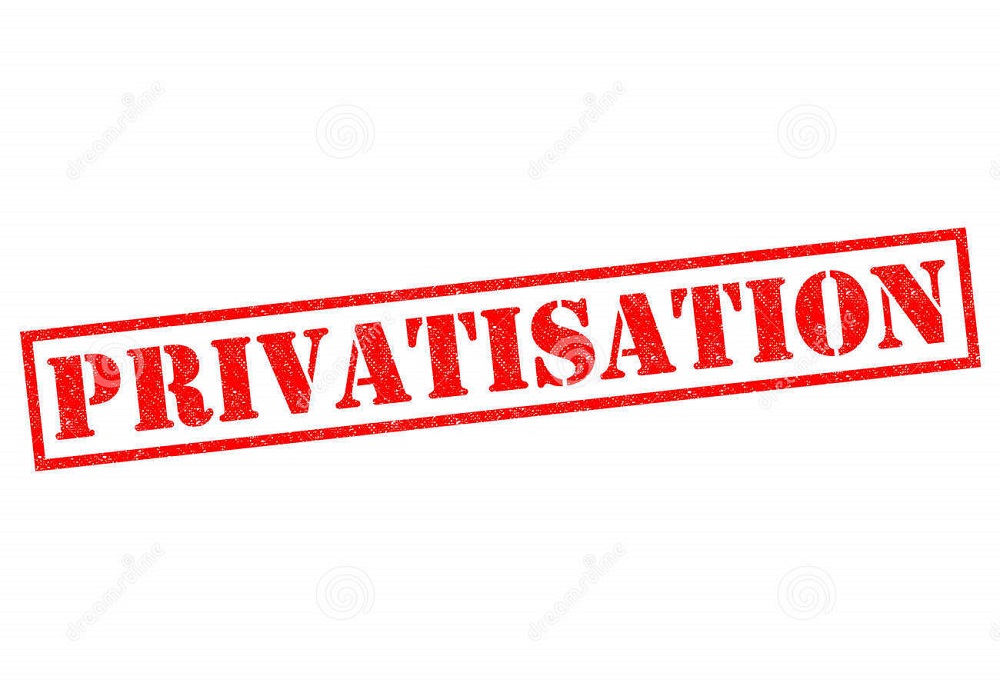AUPCTRE opposes privatization of public utilities
The Amalgamated Union of Public Corporations, Civil Service Technical and Recreational Services Employees (AUPCTRE) has kicked against the privatization of public utilities, saying it is against national interest. This is contained in the communique of the 24th plenary session of the National Governing Council (NGC) meeting of the AUPCTRE, held in Enugu State and jointly […]

The Amalgamated Union of Public Corporations, Civil Service Technical and Recreational Services Employees (AUPCTRE) has kicked against the privatization of public utilities, saying it is against national interest.
This is contained in the communique of the 24th plenary session of the National Governing Council (NGC) meeting of the AUPCTRE, held in Enugu State and jointly signed by the National President, Benjamin Anthony and General Secretary Sikiru T. Waheed.
- ‘Buhari Must Go’ graffiti demonstrate public resentment to misrule – PDP
- Bandits release five more students in Kaduna
It was themed, “COVID-19 And the Changing World of Work”.
“The NGC-in-session observed with dismay the trends of privatization of public utilities in Nigeria with utter disregard to public interest. This policy privatization is derived from the neo-liberal economic policy sponsored by World Bank and International Monetary Fund (IMF) tailored towards Public Private Partnership (PPP).
“NGC-in-session further observed that the privatization agenda of the ruling class is to convert the common wealth of Nigeria to private ownership. NGC-in-Session therefore advocates for Public-Public Partnership (PuP) as an alternative to PPP and calls on Government to reverse this treacherous agenda as most of the organisations already privatized have only resulted in loss of jobs and untold hardship for Nigerians,” the communique said.
The meeting which was attended by the Enugu State Governor Ifeanyi Ugwuanyi, represented by the State Commissioner for Labour and Employment, Hon. Uche Ogbonna and other dignitaries deliberated extensively on the socio-economic and political challenges affecting Nigerian workers, the downtrodden masses and the Nigeria nation at large.
On the COVID-19 protocols, the union commended the Federal Government for the speed at which public enlightenment is provided to the public and vulnerable Nigerians to curtail the spread of the virus, but cautioned that the campaign should not be politicized or turned to a money-making jamboree for any individual or groups.
The union equally warned that government and other employers of labour should not leverage on COVID-19 pandemic to relieve workers of their work or slash workers’ salary and wages.
It said, “The NGC-in-Session frowned at the alarming rate of kidnapping for ransom, armed robbery, ritual killings and other Social vices that have permeated the very fabric of this Nation. The NGC observed the lackadaisical attitude of government to arrest the situation and other precautionary measures aimed at curbing the incidence which have caused a shameful kidnapping of a whole family across the states of the Federation.
“NGC-in-Session, therefore, calls on Federal Government to declare a state of emergency on Security matters in Nigeria.”
The union also condemns the intents and contents of the National Water Resources Bill which will regulate the use of Water in Nigeria and take away ownership of all water from Nigerian masses to the Federal Government.
The NGC-in-Session resolved to collaborate with community leaders, interest groups, Civil Society Organisations and social partners to ensure that the anti-peoples bill does not see the light of the day.
It added, “The NGC-in-Session observes that some state government indulging in unilaterally slashing of workers salary at the wake of COVID-19 pandemic which has also affected the economic condition of workers and their unions.
“This action contravenes the Nigeria Labour Laws and International Labour Organisation (ILO) convention on equal pay for equal work done. The NGC-in-Session therefore sends a warning signal to such erring states as continuation of such policy will invoke the collective strength of labour force.”
